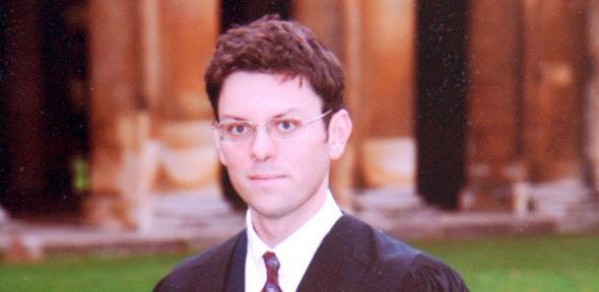
Congratulations to Andrew Gordon Wilson, a research student in the Department of Engineering’s Machine Learning Group, who has won a £10,000 G-Research award for his PhD dissertation.
Machine learning aims to develop intelligent agents which can reason and make decisions without human intervention.
Andrew Wilson
Andrew first became aware of machine learning as a maths and physics undergraduate. At the time, Andrew was working on a new prototype positron emission tomography (PET) device for medical imaging, when he developed an artificial neural network to solve a challenging new image reconstruction problem.
Andrew said: "I was excited to find out about machine learning, a young and open-minded field, full of interdisciplinary research. You could be researching different problems in computational biology, nuclear magnetic resonance and cosmology all in the same week."
"Machine learning aims not only to equip people with tools to analyse data, but to create algorithms which can learn, make decisions, recognize patterns and perform extrapolation, without human intervention".
Andrew's dissertation is entitled "Covariance Kernels for Fast Automatic Pattern Discovery and Extrapolation with Gaussian Processes" and follows several high level principles:
1) To develop truly intelligent systems - statistical models which can automatically discover patterns in data, perform extrapolation and learn and make decisions without human intervention - we should develop highly expressive models with the appropriate inductive biases.
2) We can typically improve the predictive performance of a model by accounting for additional structure in data.
3) We most need expressive models for large datasets, which typically provide more information for learning structure.
4) We can often exploit the existing inductive biases (assumptions) or structure of a model for scalable inference, without the need for simplifying assumptions.
Underlying many popular models in machine learning is a 'covariance kernel'. The covariance kernel controls the expressive power and inductive biases of such models. Knowing which kernel to use is difficult, and is generally an unresolved problem. Sometimes expert statisticians hand craft kernels for specialised applications.
However, most popular kernels can only be used for smoothing and interpolation. Andrew's thesis introduces new covariance kernels which enable pattern discovery and extrapolation without human intervention - a step towards automating statistics, and solving kernel selection problems. Moreover, Andrew's work exploits the structure of these kernels so that these models can scale to massive datasets, with no loss in predictive accuracy. The models in his thesis enable new applications and state of the art results in econometrics, geostatistics, nuclear magnetic resonance spectroscopy, time series modeling, kernel discovery, acoustic modeling, image inpainting, texture extrapolation, gene expression and video analysis.
Andrew is soon starting a research fellowship in the SAILING machine learning group at Carnegie Mellon University. He said: "I have enjoyed my time at Cambridge, and I'm excited to continue my work at a pioneering machine learning department. I am confident that machine learning will greatly improve our lives and lead to groundbreaking scientific discoveries."
G-Research is a London-based finance and technology business which researches algorithmic trading strategies to predict price movements in financial markets across multiple asset classes.
More information about Andrew’s award can be found here:

